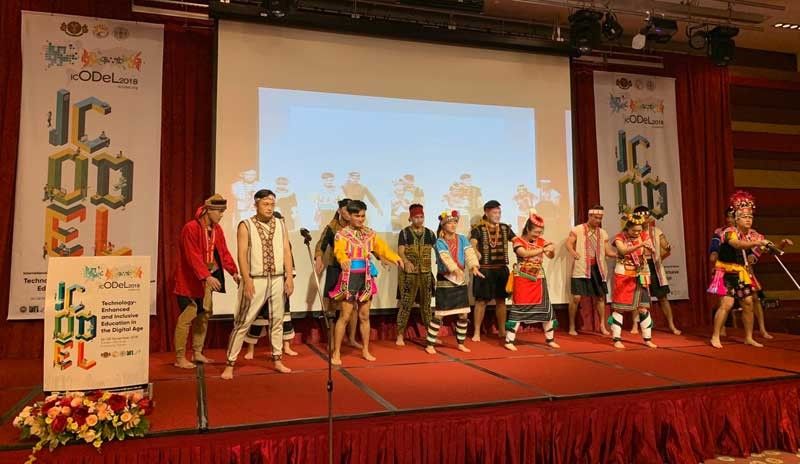Opening up to Taiwan

As it happened, I was in Taiwan twice last month to represent the University of the Philippines in two important conferences that underscored the importance of our academic partnerships with our Taiwanese counterparts — and the importance they accord to improving relations with Philippine universities.
Over the past decade, the Philippines has been sending scores of graduate students to various universities in Taiwan for their masteral and doctoral degrees, mainly in the sciences, where Taiwan has a lot to offer the world, given its cutting-edge technologies and laboratories. This also plays into one of the island’s growing predicaments — a demographic dip that has encouraged its policymakers to draw students for its universities from around the region, embodied in its so-called “New Southbound Policy” of promoting relations with South and Southeast Asia and Australasia.
Southern Taiwan has been especially aggressive in opening and developing academic relations with Philippine universities, banking on its geographical and cultural proximity to us. (It always amazes me how closely their aboriginal costumes and folkways resemble ours.)
The first conference I attended was the Presidents’ Forum of the South and Southeast Asian and Taiwan Universities (SATU), a consortium organized 15 years ago and since led by the National Cheng Kung University based in Tainan. This year’s meeting was devoted to strengthening linkages between universities and industries, with experts from Thailand (medical sciences) and India (engineering) supporting their Taiwanese counterparts in providing models for cooperation. SATU universities match experts who then work collaboratively on projects ranging from robotics and wind tunnels to dengue and stem cell research.
The second and larger conference was held in the port city of Kaohsiung, even farther south (both Tainan and Kaohsiung are easily reachable from Taipei by high-speed train). This was the 3rd International Conference on Open and Distance e-Learning (ICODeL) with the theme “Technology-Enhanced and Inclusive Education in the Digital Age,” and while it took place in Taiwan, it was actually organized and run by the UP Open University (UPOU), with support from the Commission on Higher Education (CHED), the Manila Economic and Cultural Office (MECO), the National University of Kaohsiung, the Open University of Kaohsiung, the Southern Taiwan Universities Alliance, and Taiwan’s Edu-Connect Southeast Asia network, among others.
This is as good a time as any to highlight the work of UPOU, one of UP’s eight constituent universities — one that happens to have the smallest physical footprint (it occupies a small lot in Los Baños, Laguna) but the largest global reach, because of its online presence. Founded almost 25 years ago to democratize access to quality higher education through distance education, UPOU came fully online in 2007, with 25 percent of its enrollees spread out over 70 countries. It offers three undergraduate, about 30 graduate diploma and masteral, and three doctoral degree programs, from which it has produced close to 3,000 graduates, mostly from its Multimedia Studies and Education programs.
All of this happened, former UPOU Chancellor Grace “Gigi” Javier Alfonso told me, without compromising UP’s high educational standards. “Applicants to our undergraduate degree programs still have to pass the UPCAT,” she said.
There’s a persistent impression out there that open universities and distance education offer cheaper but also lower-quality education and easier-to-pass courses, but UPOU has been working hard to prove this stigmatization wrong. “We offer the same quality of education as any other UP CU,” said current Chancellor Melinda Bandelaria, who also presides over the Asian Association of Open Universities (AAOU). “What open universities like UPOU provide is a chance for working professionals, housewives, entertainers, and OFWs to acquire a college or graduate education at their own pace, wherever they may be in the world. It’s not a replacement for, but an alternative to, traditional residential colleges.”
Many of UPOU’s students are OFWs working on their degrees, which will boost their skills and employability where they are and when they come home. One of the highlights of ICODeL was the inauguration of a Philippines Learning Commons in Kaohsiung where UPOU students could access their materials online. Much of the instruction of UPOU and other open universities is done through Massive Open Online Courses or MOOCs, which have become increasingly popular in the global academic landscape. UPOU now has more than 70 MOOcs on its roster, with 3 MOOCs typically covering a 3-unit course. It typically takes three years to finish a master’s degree with UPOU.
Mandated by RA 10650 or the Open Distance Learning Act to assist CHED and TESDA, UPOU had engaged industry experts help it in designing Open Educational Resources or OERs which are free to use by teachers and students; UPOU then develops MOOCs using these OERs. “When industries work with universities, they create a powerful engine for economic growth and innovation,” said Dr. Bandelaria.
The point of bringing ICODeL to Kaohsiung was also to match UPOU and the many Philippine SUC officials who attended the conference with their Taiwanese counterparts. The chief matchmaker was Edu-Connect’s indefatigable executive director, Dr. Eing-Ming Wu, a political scientist and chair professor at Shu-Te University who has been one of the most energetic promoters of the Philippines abroad that I’ve ever met.
With these connections in place, Philippine educators may not have to look much farther than our closest northern neighbor for vital help in raising their educational standards.
* * *
Email me at jose@dalisay.ph and visit my blog at www.penmanila.ph.



















